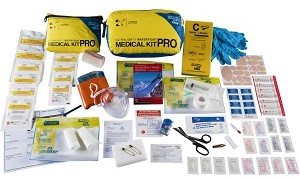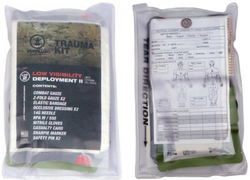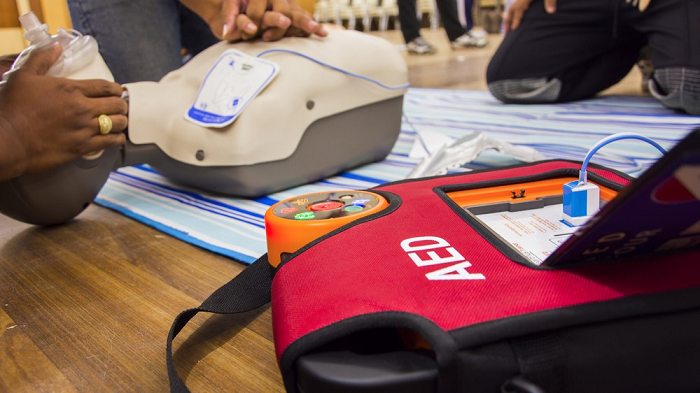Living the life of adventure will eventually land you in dangerous situations. Whether it’s a gunshot, outdoor mishap, or vehicle accident, you will be exposed to medical emergencies over your lifetime.
Living like a Gentleman Spy means being able to save the day. Acquiring basic medical training and tools may mean the difference between life and death for you or somebody you love.
FIRST AID TRAINING

At its most basic, medical training is available from the Red Cross. Almost every country has a Red Cross or Red Crescent society that will offer training in CPR and first aid. If you have not attended a First Aid/CPR/AED course in the last few years, start with that now.
Stepping up from that, there are a few directions you can go. There are slightly more in depth “professional” lifesaving training geared towards first responders, to month-long Emergency Medical Technician training. While this is overkill for most people, if you live life at the extremes this is a worthwhile investment.
A byproduct of the Global War on Terror are the newer “civilian tactical medicine” courses. These are geared towards dealing with the massive trauma seen on the battlefield and in active shooter scenarios: severe hemorrhage, tension pneumothorax, and treating shock.
Whether you obtain basic first aid training for less than $100 or go all the way through a Remote EMT certification, there is no excuse for not having a basic life saving capability.
LIFE-SAVING EQUIPMENT
With training comes the equipment necessary to save a life.

The basic first aid kit will come in handy far more often than you would expect. Bypass the dime-store “first aid kits” and purchase one of the specialized kits designed for outdoor, maritime, or industrial use. These generally contain the standard band-aids and painkillers, but often go more in depth by adding gauze, splints, and other tools for dealing with more advanced emergencies.

For those that really want to go the next step, there are tactical trauma kits now available to the civilian market, as well as automated external defibrillators and oxygen units for those who are more likely to face cardiac and/or respiratory emergencies like scuba divers or those with elderly coworkers and family members.
From dealing with hangovers and treating the minor nicks and bruises that come from a life well lived to having the tools necessary to deal with a mass casualty event, you owe it to yourself and those around you to acquire at least the basic training and tools necessary to save a life in a medical emergency.
QUICK-START GUIDE:
To get started today, enroll in a basic first aid/CPR/AED course at the Red Cross.
Get at least a basic first aid kit and spring for a trauma kit and tourniquet if you can (use code GENTLEMANSPY for 10% off your order at Phokus Research Group).
For more information including additional kit recommendations, advanced training options, and more…
